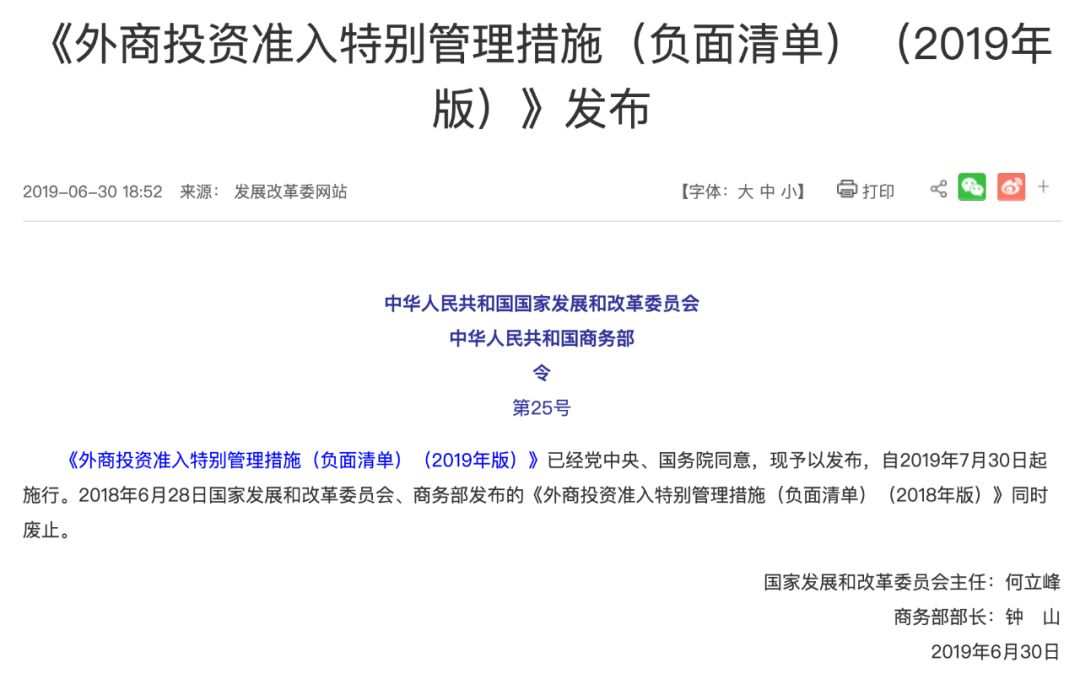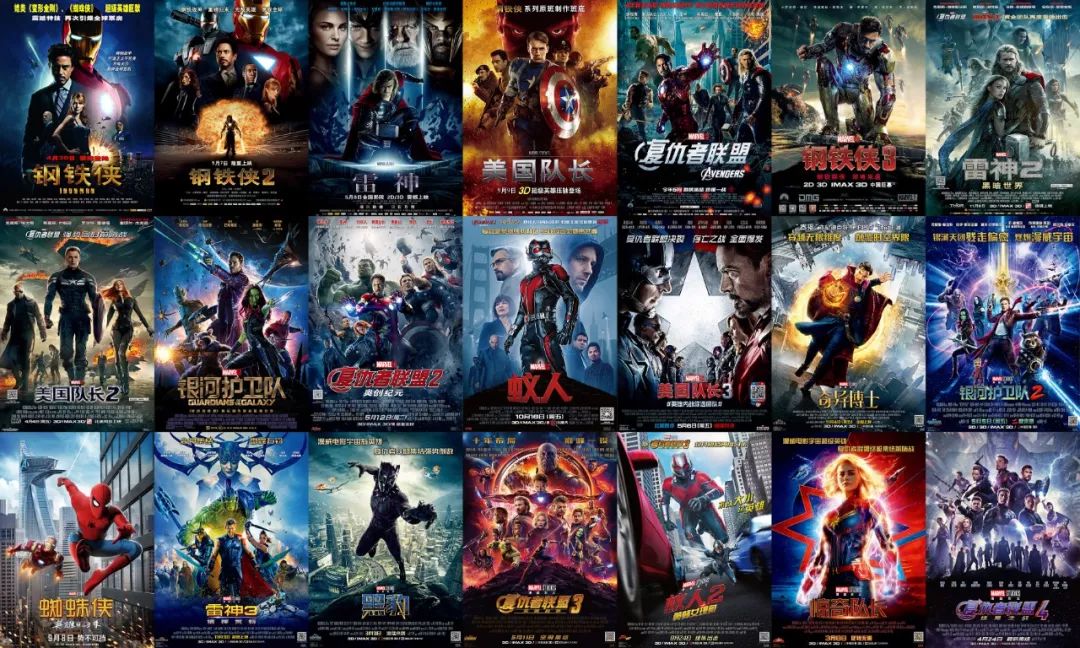The Beijing pilot project to announce the opening of foreign direct investment in online audio-visual programs has attracted much attention and will undoubtedly stir up a pool of spring water.
Editor’s note: This article from the public micro-channel number “Entertainment Observation” (ID: yiyuguancha), text | big entertainer, editor | Authorized to publish.
 On August 15, Beijing released the “Three-Year Action Plan for the Open Reform of the Key Areas of the Beijing Service Industry Expansion and Opening-up Pilot Project”, and launched eight online audio-visual programs, Internet finance, and cultural tourism. 190 open innovation initiatives in the field.
On August 15, Beijing released the “Three-Year Action Plan for the Open Reform of the Key Areas of the Beijing Service Industry Expansion and Opening-up Pilot Project”, and launched eight online audio-visual programs, Internet finance, and cultural tourism. 190 open innovation initiatives in the field.
▲ Image source: Beijing Municipal People’s Government
In the “Three-Year Action Plan for Open Reform in the Internet Information Field”, Beijing proposed to promote foreign investment access conditions for Internet content operations such as open Internet games, videos and books, and explore the pilot open areas in Beijing to break through existing The policy allows foreign capital to provide online game download and network audiovisual program services while satisfying content supervision and data security.
This means that the game download service and online video delivery service that are not allowed in foreign countries will be piloted in Beijing. In other words, once the relevant policies are implemented and foreign companies start to follow up, like the world’s largest stream. Media service provider Netflix will likely achieve real entry into the Chinese market, and this policy seems to have made the North American streaming media war that started at the end of this year more than one point.Look at it.
Foreign investment is difficult,Netflix’s twists and turns into history
In fact, in the past, foreign streaming companies did not want to enter the Chinese market, especially those companies that value overseas expansion like Netflix. So far, they have taken root in more than 190 countries and regions around the world, according to the latest season. The financial report shows that Netflix’s North American users have experienced negative growth, and it is clear that the international market is the key to its continued advantage in the next step.
Netflix, which has always been confident in overseas expansion, initially wanted to enter the Chinese market independently. As early as 2015, there was media news that Netflix was looking for Chinese service personnel. Netflix CEO Hastings also said without any disguise that before 2017, people around the world will enjoy their content and services.
However, the reality is much more cruel than imagined. According to the 2019 edition of the Special Management Measures for Foreign Investment Access (Negative List) issued by the National Development and Reform Commission and the Ministry of Commerce, “the investment in Internet news information services, online publishing services, and online audio-visual is prohibited. Program services, Internet culture management (except music), Internet public information service.
and even if the foreign investment is abandoned In this article, China’s rigorous video license system and content censorship system is an insurmountable “scorpio”. A company that wants to provide network audio-visual services only needs the information network to broadcast audio-visual program licenses. Eight kinds of licenses, such as the “Certificate”, “Network Culture Business License” and “Internet News Information Service License”, many of which have been suspended in recent years.
It can be said that in the past, it was almost an idiotic dream for foreign investors to directly land online services, let alone provide a large amount of video content.
According to relevant regulations, film and television dramas taken by overseas organizations belong to overseas film and television dramas, and they need to be filed in the “Uniform Online Registration Platform for the Introduction of Information on Online and Foreign TV Dramas” and approved for the “TV Play Release License” (specified for information network communication). ), you can go online.
And since 2015, the then SARFT announced that the US TV series purchased on the video platform will be “pre-trial”.”Broadcast”, which led to the platform’s desire to synchronize the broadcast of China and the United States, the fact that genuine can’t get the advantage of time also directly aggravated the circulation and flood of piracy. For Netflix, who is obsessed with global synchronization, this situation is even more Accepted.
Netflix, which could not solve the above problem, immediately gave up the plan to enter China independently. He began to seek cooperation with domestic video giants to fight for the corresponding space. From 10,000 to Ali, it was once a “smell” with Netflix, and even news The latter is more interested in acquiring Netflix than the acquisition of Youku (when Netflix has not exceeded $100 billion in market value).
In the 2016 Netflix third quarter earnings conference call, Hastings admitted that his tough route to China has failed, and they immediately turned to the idea of “curve into China”, “because it is going to be in the Chinese market. The regulatory environment has become more and more challenging, so they now decide to enter the Chinese market through content authorization, that is, using the domestic video website to launch content.”
In 2017, Netflix and iQiyi reached a cooperation agreement to grant their original content license to the Netflix platform. At the time, the comments agreed that this would be a replica of HBO’s cooperation with Tencent Video, which enabled the success of these foreign content through an exclusive agreement. Landing, but also help domestic video platforms to benefit from the competition.
However, in May this year, iQiyi CEO Gong Yu revealed that the cooperation between the two parties has ended. It can be said that this is a failed cooperation. In two years, Netflix’s content has not successfully landed in iQiyi, the latter The Netflix brand’s contribution is not even as good as the Sohu video that purchased the exclusive copyright of “House of Cards”.
Streaming media is on the verge of exploding,Being first to enter China will take the lead
Netflix’s twists and turns into China have clearly shaped a negative example for overseas streaming media, and will include both Disney’s Disney+ and Apple’s Apple TV+ in the second half of this year, and will be available early next year. Streaming platforms with HBO Max and NBC Universal will enter the battlefield, NorthThe US market is naturally the focus of competition, but the global audience that has been “educated” by Netflix will surely become the focus of every effort.
With the introduction of Beijing’s latest open policy, “Netflix” is hard to move. Especially for Disney and Apple, the two giants clearly have more experience in dealing with the Chinese government and the market than Netflix.
Disney opened two Disney parks in China. Hong Kong does not have to say that Disney can say that it is as much as Netflix for being able to successfully settle in Shanghai.

Tianni was as tough as Netflix, but when they found this tough stance to be of no benefit, the Mickey Mouse-branded company finally began to lower its position. In 2008, Disney CEO Robert A. Iger Significantly reduced the requirements in exchange for the Shanghai government to give a green light to the Disneyland, Disney’s control of its assets is not only the first time to sell part of the theme park’s operational voice, and more importantly, abandoned its long-term theme park and The TV channel is bound by the binding.
The New York Times used “unbelievable” to describe Disney’s concessions on the TV channel. It should be said that giving up the Disney TV channel in China is actually Disney’s abandoned branding strategy. “We If you feel that you can get everything you want, it is self-deception.” Iger said at the time.
And just a decade after Disneyland was allowed to land in Shanghai, Disney has clearly begun to adapt to how the Chinese market should maintain its giants. In addition to paradise, Disney has three to five movies a year. Entering the domestic cinema line in the form of sub-accounts, the Chinese market has gradually begun to become the second largest ticket warehouse for its Marvel Super-British films, second only to North America.
▲ Marvel series movie poster
If you can get tickets to enter the Chinese market when you are expanding globally, Disney+, the streaming service that uses super-British derivative works as the main selling point from the beginning, obviously has an advantage in brand appeal, while relying on The original movie has been released in China for many years and a large number of copyright sales in the past. Disney is clearly able to better grasp the scales of domestic censorship and other aspects. For the future, more and more original drama content will surely become beneficial to China.
As for the technology company Apple, the performance of the Chinese market has already become a barometer of its performance, and now Apple, who wants to shift its performance growth from hardware to service, will sooner or later need to face the problem of how to put more services into the Chinese market. .
In fact, four years ago, Apple’s iTunes Movies and iBooks Store were once used in China, but with the tightening of regulations, in 2016, Apple should be in charge of the regulatory authorities to shut down these two services in China. Now Apple can The domestic market offers only personal cloud services, application downloads and music streaming services.
In March, Apple officially launched Apple Arcade, its game subscription service, and Apple TV+, a video streaming service. In a way, Beijing allows foreign investors to provide online game downloads while meeting content regulation and data security. The network audiovisual programming service is almost as tailor-made as Apple’s latest service.
Like Disney, Apple, which has a large number of stores in China, has long understood the rules of the Chinese market. At some point they will give up the established principles in foreign markets in a timely manner, such as Apple, which has always attached importance to privacy protection, and domestic users last year. The iCloud cloud service was transferred to the state-owned holding company “Guizhou Guizhou”.
Compared to Netflix, Disney and Apple’s streaming media has another advantage in terms of the value orientation and scale of its content. For Netflix, which is online-based and has spared no effort to attract viewers, Scales and sensitive subjects have always been popular with them. For example, the recent Japanese-language drama series “Naked Supervision” with a high degree of topicality is completely adult-oriented.
▲ “Naked Oversight” poster
While the family-oriented Disney and the Apples that sell mass consumer goods, they will worry that their content is too offensive, so the works of all ages areThey will be committed to building it.
If foreign streaming media enters China, will definitely cause a big change in the domestic market
Today’s domestic streaming media market is in the three-pronged situation of iQiyi, Tencent video and Youku, but in fact these three have not yet gained too much commercial return, and once foreign streaming media enters, the overall situation will be There will be a big change.
It should be said that At the same time that foreign streaming media has flourished in the past few years, Aiyouteng has also played a certain “educational” role in the audience in China. More than 100 million paid members have been enough to show that the current domestic audience has become more willing to pay for premium content. And with the paying user base already large enough, Netflix, which has more advantages in terms of content, can almost be said to be collecting dividends.
On the other hand, foreign streaming media will inevitably push up the price of domestic film and television copyrights. In the case of difficult original content production in the early stage, it is dependent on copyright content like Netflix. Streaming media service providers will still choose to buy domestic film and television content copyrights, and in the case of competition, the premium situation may be more obvious. This will also make the copyright price war that has just cooled down become hot again, and it is in a state of loss. The domestic video platform will be even more difficult.
Of course, if these giants enter China, they will bring fresh air to China’s streaming media market, and it is no exaggeration to say that Netflix and Apple’s high-tech requirements for streaming media content and technical standards are bound to be Will drive the domestic streaming media platform to follow up.
And when they start making original, local-based content, like the movie industry, they will bring Hollywood’s high specs to the country, as Netflix did when they made “Kingdom” in Korea. It is forced to upgrade China’s film industry and personnel to adapt to more intense competition.
▲ “Kingdom” poster
Although it is still just on paper, with the implementation of relevant policies, the days of seeing Netflix, Disney+, and Apple TV+ through formal channels may be getting closer and closer, and then the final benefit is still eager for good content. A long-time Chinese audience.






